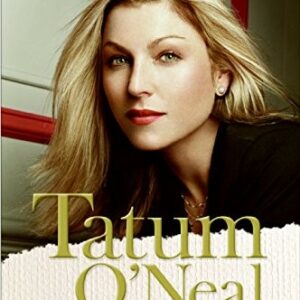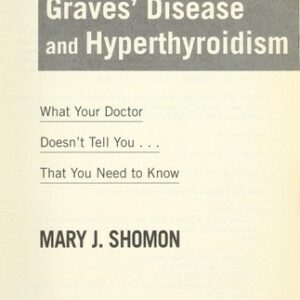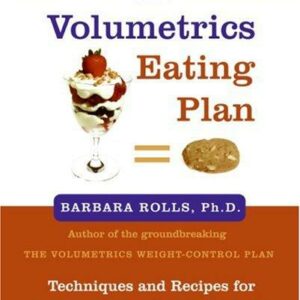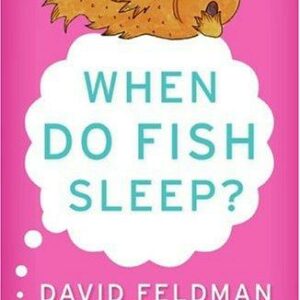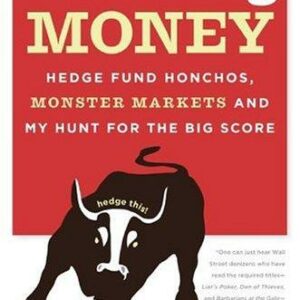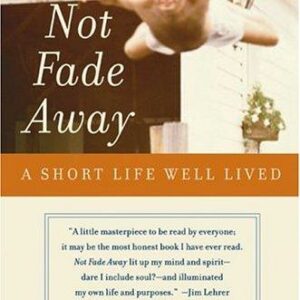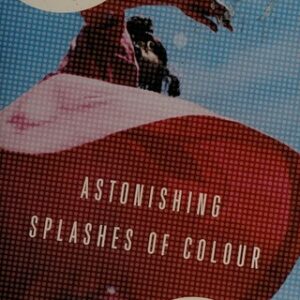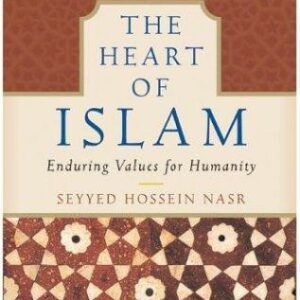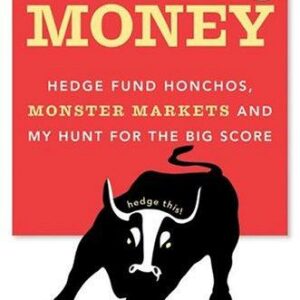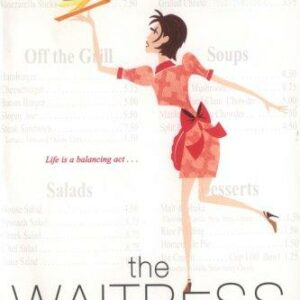Ally
$20.00
| Title | Range | Discount |
|---|---|---|
| Trade Discount | 5 + | 25% |
- Description
- Additional information
Description
NEW YORK TIMES BESTSELLER • Includes a new afterword about the Iran nuclear agreement, the 2016 presidential race, and the future of the U.S.-Israel alliance
Michael B. Oren’s memoir of his time as Israel’s ambassador to the United States—a period of transformative change for America and a time of violent upheaval throughout the Middle East—provides a frank, fascinating look inside the special relationship between America and its closest ally in the region.
Michael Oren served as the Israeli ambassador to the United States from 2009 to 2013. An American by birth and a historian by training, Oren arrived at his diplomatic post just as Benjamin Netanyahu, Barack Obama, and Hillary Clinton assumed office. During Oren’s tenure in office, Israel and America grappled with the Palestinian peace process, the Arab Spring, and existential threats to Israel posed by international terrorism and the Iranian nuclear program. Forged in the Truman administration, America’s alliance with Israel was subjected to enormous strains, and its future was questioned by commentators in both countries. On more than one occasion, the friendship’s very fabric seemed close to unraveling.
Ally is the story of that enduring alliance—and of its divides—written from the perspective of a man who treasures his American identity while proudly serving the Jewish State he has come to call home. No one could have been better suited to strengthen bridges between the United States and Israel than Michael Oren—a man equally at home jumping out of a plane as an Israeli paratrooper and discussing Middle East history on TV’s Sunday morning political shows. In the pages of this fast-paced book, Oren interweaves the story of his personal journey with behind-the-scenes accounts of fateful meetings between President Obama and Prime Minister Netanyahu, high-stakes summits with the Palestinian leader Mahmoud Abbas, and diplomatic crises that intensified the controversy surrounding the world’s most contested strip of land.
A quintessentially American story of a young man who refused to relinquish a dream—irrespective of the obstacles—and an inherently Israeli story about assuming onerous responsibilities, Ally is at once a record, a chronicle, and a confession. And it is a story about love—about someone fortunate enough to love two countries and to represent one to the other. But, above all, this memoir is a testament to an alliance that was and will remain vital for Americans, Israelis, and the world.“Michael Oren, Israel’s former ambassador to the United States, has written the smartest and juiciest diplomatic memoir that I’ve read in years, and I’ve read my share. The book, called Ally, has the added virtues of being politically relevant and historically important. This has the Obama administration—which doesn’t come out looking too good in Mr. Oren’s account—in an epic snit. . . . [Oren’s] memoir is the best contribution yet to a growing literature—from Vali Nasr’s Dispensable Nation to Leon Panetta’s Worthy Fights—describing how foreign policy is made in the Age of Obama: lofty in its pronouncements and rich in its self-regard, but incompetent in its execution and dismal in its results. Good for Mr. Oren for providing such comprehensive evidence of the facts as he lived them.”—Bret Stephens, The Wall Street Journal
“Illuminating . . . Oren was by no means Netanyahu’s most truculent adviser, but his personal odyssey exemplifies the shift from a liberal and secular Zionism to a more belligerent nationalism.”—The New York Times
“Unlike other diplomatic memoirs, which rarely disclose anything controversial, Oren’s Ally: My Journey Across the American-Israeli Divide is provocative, as the former ambassador blames President Barack Obama for the sorry state of U.S.-Israel relations and much else that’s wrong in the Middle East today. . . . Oren’s book offers a view into the deep rifts that have opened not only between Washington and Jerusalem, but also between Israeli and American Jews.”—Newsweek
“A book full of penetrating insights . . . [Oren’s] beguiling, surprisingly frank memoir not only gives us the reality of what achieving his dream entailed, but tells us what he went through in order to get there. . . . It is the product not only of Mr. Oren’s challenging ambassadorial tenure in Washington but of a life well lived as an Israeli and as an American, a combination which makes him one of the most uniquely qualified judges of this ever more crucial special relationship.”—The Washington Times
“Oren has written the diplomatic equivalent of a ‘kiss-and-tell’ memoir, chronicling his years as Israel’s ambassador. . . . It is less sensational than the parts cherry-picked before publication. Yet it is informative and in parts entertaining. . . . The book is a useful account, if partial and partisan, of a unique time in US-Israeli relations, in which officials of both are criticizing each other with increasing bluntness.”—Financial Times
“The talk of Washington and Jerusalem . . . I’m not sure that in the annals of diplomatic history there’s ever been anything quite like this astonishing account of Oren’s four years as Israel’s ambassador in Washington. It’s an ultimate insider’s story told while all the players save Oren are still in place.”—New York Post
“Ally is an important read for those seeking to understand the complexities of the American-Israeli alliance. Unlike his previous two books, which were written from the perspective of an historian and became New York Times bestsellers, former Israeli ambassador Michael Oren’s latest book is based on his own personal experiences, perceptions and interactions with President Obama and the administration.”—The Huffington PostMichael B. Oren is an American-born Israeli historian and author, and was Israel’s ambassador to the United States from 2009 to 2013. He has written three New York Times bestsellers—Ally: My Journey Across the American-Israeli Divide; Power, Faith, and Fantasy: America in the Middle East, 1776 to the Present; and Six Days of War: June 1967 and the Making of the Modern Middle East, which won the Los Angeles Times Book Prize for history and the National Jewish Book Award. Throughout his illustrious career as a Middle East scholar, Dr. Oren has been a distinguished fellow at the Shalem Center in Jerusalem, a contributing editor to The New Republic, and a visiting professor at Harvard, Yale, and Georgetown. The Forward named Oren one of the five most influential American Jews, and The Jerusalem Post listed him as one of the world’s ten most influential Jews. He currently lives with his family in Tel Aviv. He is a member of the Knesset and the Deputy Minister for Diplomacy in the Prime Minister’s Office.The Perforated
Passport
The Embassy of the United States to the State of Israel should be a majestic structure. After all, it is the hub of America’s most special relationship with any foreign nation. And yet the building—squat and colorless—looks like a bunker. Perhaps the purpose is to discourage the hundreds of Israelis who daily line the sidewalk outside to apply for tourist visas, or to confound any terrorist who managed to skirt the concrete obstacles girding the grounds. Whatever its purpose, the bleak exterior reflected my mood as I entered the compound in early June 2009 and presented my passport.
That Yankee-blue document announced that I had been born Michael Bornstein, in Upstate New York and had been a U.S. citizen for more than half a century. With a faded cover and pages tattooed by customs, it had accompanied me on innumerable transoceanic flights. Presenting that passport at Newark’s Liberty International Airport, a twenty-minute drive from where my parents raised my two sisters and me, I beamed each time the inspectors wished me, “Welcome home.”
I believed in that passport—in the history it symbolized, the values it proclaimed. Awareness of the nation’s darker legacies, such as slavery, did not make me less sentimental about America. My eyes still misted during the national anthem, brightened at the sight of Manhattan’s skyline, and marveled at the Rockies from thirty-five thousand feet. Once, when reading aloud the inscription on the Lincoln Memorial and already choking at “four score and seven years ago,” my children rolled their eyes and sighed, “There he goes again. . . .”
My affection for America sprang naturally. Growing up in the northern New Jersey town of West Orange, I played Little League baseball, attended pep rallies, and danced—in a lamentable banana tux—at my senior prom. My father, who fought in World War II and afterward served in the army reserves, took me to his unit’s reunions and to summer maneuvers to watch the color guards parade. I, too, marched, albeit across halftime gridirons puffing into a baritone horn. At Boys State, the American Legion’s semimilitary seminar, Vietnam vets put me and other selected seventeen-year-olds through a basic training in American democracy. The following year, I starred as Don Quixote in our high school’s production of Man of La Mancha, the musical based on Cervantes’s classic. Arrayed in rusted armor, I tilted at windmills and strained for the high notes while enjoining the audience to “Dream the Impossible Dream.”
Yet there were handicaps. Like many in our working-class neighborhood, my parents struggled financially. They could not afford to send me to the pricey Jewish summer camps, and instead packed me off to a rustic YMCA program with mandatory church services and grace before meals. Overweight and so pigeon-toed that I had to wear an excruciating leg brace at night, I was hopeless at sports. And severe learning disabilities consigned me to the “dumb” classes at school, where I failed to grasp elementary math and learn to write legibly.
Yet, fervently determined, I managed to overcome these obstacles. At fourteen I went on a draconian diet and slimmed down, forced myself to run long distances while keeping my feet straight, and forged myself into an athlete. Meanwhile, my mother lovingly showed me how to type on an old Fleetwood on which I began to peck out poetry. After publishing my verse in several national magazines, I was transferred into a “smart” class, taught myself grammar and spelling, and ultimately attended Ivy League schools. All the hallmarks of an American success became mine, I acknowledged, thanks in part to uniquely American opportunities.
If sentimental about the United States, I also felt indebted. From the time that all four of my grandparents arrived in Ellis Island, through the Great Depression in which they raised my parents, and the farm-bound community in which I grew up, America held out the chance to excel. True, prejudice was prevalent, but so, too, was our ability to fight it. Unreservedly, I referred to Americans as “we.”
Now I was about to forfeit that first-person plural. The Marine behind the glass booth at the U.S. embassy in Tel Aviv examined my passport and wordlessly slipped it through the window. The coolness of his reception would soon become routine. Landing at Liberty Airport, I would never again be greeted with “welcome home.”
Americans, I would often remind Israelis, are painstakingly nice—until they are not. “Have a nice day” can become “screw you” in an instant. That morning, officials at the U.S. embassy were in courteous mode, expediting the security check, escorting me between the cubicles of the consular section. There passports are extended and new ones issued. Mine would be neither.
My knees felt rubbery and my shirt, already dabbled by the humidity outside, stuck to my flanks. Relief came in the teddy-bearish form of Luis Moreno, the deputy chief of mission, an old acquaintance. Luis brought me into the office of U.S. Consul General Andrew Parker, who sat behind his desk surrounded by mementos from his previous postings and fronted by a gold-trimmed Stars and Stripes. We exchanged pleasantries, griped about the khamsin—the gritty desert wind plaguing Tel Aviv—but could not ignore the reason for my visit.
Bespectacled, neatly goateed, Parker could be mistaken for a kindly professor if not for his undertaker’s tone. Raising my right hand, he asked me to repeat after him: “I absolutely and entirely renounce my United States nationality together with all rights and privileges and all duties and allegiance and fidelity thereunto pertaining.” I repeated those words while gazing at the flag to which I had pledged allegiance every school day from kindergarten through high school. Then, across his desk, Parker arrayed several copies of an affidavit. This reaffirmed “the extremely serious and irrevocable nature of the act of renunciation,” acknowledging that, henceforth, “I will become an alien with respect to the United States.”
I signed each copy, swearing that I knew precisely what I was doing and that I was acting of my own free will. I must have appeared shattered because Luis Moreno leaned over and gave me a hug. But the ordeal was not yet complete, Consul General Parker indicated. Officiously, almost mechanically, the consul general inserted my American passport into an industrial-sized hole puncher and squeezed. The heart of the federal eagle emblazoned on the cover of the document was pierced.
Growing Up American
How did I reach this unnerving moment? Back in the sixties, young radicals burned their passports and cursed their fascist country, “Amerika.” But my reverence for the United States had always been deep—deeper than any hole puncher could bore. No, renouncing my American citizenship was not an act of protest. It reflected, rather, a love for another land—not that of my father, but of my forefathers.
That love could not be presented in a passport, nor could it be renounced. When did it begin? There was the distant cousin who arrived one day from a far-flung place and gave me, an eight-year-old numismatist, a shiny coin inscribed with letters I recognized from Hebrew school. Somewhere, I intuited, people actually spoke that language. There were the nerve-fraying weeks of May 1967, when the enemies of those people amassed and my parents murmured about witnessing a second Holocaust. Then, the miracle. A mere six days transformed those victims into victors. Draped in belts of .50-caliber bullets instead of prayer shawls, paratroopers danced before the Western Wall in Jerusalem. They were our paratroopers, suddenly, our people.
Because Israel was young and righteous and heroic, I fell in love with it. The country appeared to be everything to which I—at age twelve still incapable of learning the multiplication tables or of running around the bases without tripping over my own pigeon-toed feet—aspired. Even then, I had a keen sense of history, an awareness that I was not just a lone Jew living in late 1960s America, but part of a global Jewish collective stretching back millennia. Already I considered myself lucky to be alive at this juncture, when my existence coincided with that of a sovereign Jewish State. I fell in love with Israel because I was grateful, but also because I was angry.
The only Jewish kid on the block, I rarely made it off the school bus without being ambushed by Jew-baiting bullies. Those fistfights left my knuckles lined with scars. One morning, my family awoke to find our front door smeared with racist slogans; one night our car’s windshield was smashed. Then, when I was a high school freshman, the phone rang with horrendous news: a bomb had blown up our synagogue. I ran to the scene and saw firemen leaping into the flames to rescue the Torah scrolls. The next day, our rabbi stood with Christian clergymen and led us in singing “We Shall Overcome.” But no display of brotherhood could salve the pain.
In the post–World War II, WASP-dominated America in which I grew up, anti-Semitism was a constant. Hardly confined to my blue-collar neighborhood, it festered in the elite universities with their quotas on Jewish admissions, and pervaded the restricted communities and clubs. Superficially, at least, we American Jews ranked among the nation’s most successful minorities. We took pride in the Dodgers’ ace pitcher Sandy Koufax, in folksinger Bob Dylan, and actors Tony Curtis and Kirk Douglas. It tickled us that Jewish humor became, in large measure, America’s humor, and the bagel grew as popular as pizza. Jewish artists wrote five of America’s most beloved Christmas songs and practically invented Hollywood. One could hardly imagine a community more integrated, and yet we remained different. Alone among the hyphenated ethnic identities—Italian-American, African-American—ours placed “American” first. And only ours was based on religion. No one ever referred to Buddhist or Methodist Americans. As Jews and as Americans we were sui generis, as difficult for us to define as for others. A graffito on the wall of my bathroom at school asked, “Are Jews white?” A different hand scrawled beneath it, “Yes, but . . .”
Anti-Semitism completed that sentence. Whether being beaten up for my identity or denied certain opportunities because of it, I often encountered hatred. And after each incident, my father took me down to our basement. There, in a cubbyhole behind the stairwell, he secreted a musty album that his brother, another veteran, had brought home from World War II. Inside were yellowing photographs of concentration camps, piles of incinerated corpses, and snickering Nazis. “This is why we must be strong,” my father reminded me. “This is why we need Israel.”
Those photographs needed no captioning, as the Holocaust haunted our lives. The ovens of Auschwitz, I often felt in high school, still smoldered. Yet American Jews hesitated to talk openly about the murder of six million of their people, as if it were a source of shame. Then, in my sophomore year, survivor and world-acclaimed author Elie Wiesel visited our community. He spoke of his ordeals in Romania’s Sighet ghetto and the Buchenwald concentration camp. In a voice at once frail and unbroken, he challenged us to face the Final Solution publicly, not only in our basements. We did, but confronting the horrors of Jewish helplessness also forced us to face the harrowing truth that America did nothing to save the Jews. Worse, America sent thousands back to be murdered and closed its doors to millions.
That knowledge alone would have sufficed to make me a Zionist. This meant, simply, that I believed in the Jews’ right to independence in our ancient homeland. But there was more. Zionism was not merely a reaction to discrimination, but an affirmation of what I felt from an early age to be my fundamental identity. For deep-rooted reasons, Zionism defined my being.
Though I was not raised religious—I read my Bar Mitzvah in transliteration—the Jewish story of the Exodus from Egypt to the exodus from Europe resounded with meaning. Our story was the vehicle for our values: family, universal morality, social justice, and loyalty to our land. Half of humanity believed in the one God we introduced to the world nearly four thousand years ago and refused to relinquish, even under unspeakable tortures. God owed us an explanation for the Holocaust, I insisted. But Zionism offered a way of saying “we’re finished with you, God” and “thank you, God,” simultaneously. It allowed us to assert our self-sufficiency, even independence from formal religion, but in the one place that our forebears cherished as divinely given. Zionism enabled us to return to history as active authors of our own story. And the story I considered the most riveting of all time was that of the Jewish people.
I belonged to that people and needed to be part of its narrative. Being Jewish in America, while culturally and materially comfortable, felt to me like living in the margins. The major chapter was being written right now, I thought, and not in New Jersey. History, rather, was happening in a state thriving against all odds, thousands of miles away. How could I miss it?
That is why I joined the Zionist youth movement that brought me to Washington in March 1970, when I shook Yitzhak Rabin’s hand. That is why, throughout that year, I mowed lawns and shoveled snow from neighbors’ driveways to raise the airfare. And why I made repeated trips into New York City, alone, to browbeat kibbutz movement representatives into accepting me as a volunteer despite being two years short of the minimum age. The representatives relented and, in the summer of my pivotal fifteenth year, I finally purchased my ticket. I acquired my first U.S. passport and boarded a plane for Israel.
Rising to Israel
Descending the ramp, the Israeli heat hit me, hammering-hot. But even more fazing was my encounter with the country I had only imagined: smelling the citrus-scented air, seeing trees alien to New Jersey and all the signs in Hebrew. This was Israel of 1970, before serious talk of peace or the Palestinian issue, when fighting still raged on the Egyptian and Jordanian fronts. The hourly news, announced with a series of beeps, had passersby running ear-first for the nearest radio.
Behind the tension, though, lay a raffish élan and self-confidence. Toughened old-timers could still recount how they drained the swamps, battled malaria and British occupation troops, and struggled bitterly for independence against invading Arab armies. Along with its valorous past, Israel’s present was scintillating. The streets thrummed with shoppers, beggars, policemen, workers, stunning young women and men in olive army uniforms, almost all of them, inconceivably to me, Jewish.
A few days after my arrival, a wobbly Israeli bus dropped me into the dust of Kibbutz Gan Shmuel. Invented by Zionist pioneers at the turn of the twentieth century, the kibbutz—in the Hebrew plural kibbutzim—was an utterly revolutionary concept. Members of these hardworking agricultural communities shared all their worldly possessions, ate every meal in a common dining room, and raised their children in separate “houses” managed by nursemaids. Ideologically utopian, the kibbutzim fulfilled the practical goal of settling the land and absorbing Jewish immigrants. In wartime, the farms served as fortified redoubts.US
Additional information
| Weight | 13.2 oz |
|---|---|
| Dimensions | 1.0000 × 5.2000 × 8.0000 in |
| Imprint | |
| Format | |
| ISBN-13 | |
| Author | |
| Audience | |
| BISAC | |
| Subjects | history book, inspirational, biographies, memories, bios, POL059000, autobiographies, narrative nonfiction, Benjamin Netanyahu, social studies, political memoir, nonfiction books, american foreign policy, israeli, biography autobiography, middle eastern politics, non fiction history books, American Israeli relations, motivational, HIS036070, historical, culture, inspiration, biography, biographical, society, true stories, true story, political science, Social history, history books, cultural history, israel, current events, non fiction, 9/11 books |


